Welcome to Dissected, where we disassemble a band’s catalog, a director’s filmography, or some other critical pop-culture collection in the abstract. It’s exact science by way of a few beers. The time, we enter the strange, dark, and still sometimes charming world of Tim Burton. This article was originally published in 2019 and has been updated.
In 1986, after years of work in animation, various other below-the-line contributions, and a pair of short films by his own hand, Tim Burton stormed onto the international filmmaking stage with his ’80s feature run of Pee-wee’s Big Adventure, Beetlejuice, and Batman.
In just a few years, Burton made himself a household name, and one of the most unique and sought-after directorial voices in a Hollywood beginning to find itself overwhelmed by waves of homogenous, branded movies.
That’s not to pretend that Burton exists outside of the mainstream; nearly every movie in his first decade of feature-length work was released by Warner Bros., and he’s spent his decades as a notable industry presence working mostly within the studio system.
But thinking of Burton invokes images of the left-of-center, the unexpected, the strange and occult and ooky and delightful. Within that same studio system, one which has embraced franchise potential more with every passing year, Burton has made a career out of movies for the weird kids, the imaginative and idiosyncratic ones, of every age.
As Burton’s latest update of an animated classic flaps into theaters with Dumbo, we’ve taken a look at all 19 of the director’s feature-length films to date (most recent included), and from our favorites to those less so, the many ways in which Burton has come to define a particular kind of cinematic magic.
It’s showtime.
— Dominick Suzanne-Mayer
19. Dark Shadows (2012)
Runtime: 1 hr. 53 min.
Cast: Johnny Depp, Eva Green, Bella Heathcote, Helena Bonham Carter, Michelle Pfeiffer, Jonny Lee Miller, Jackie Earle Haley, Chloe Grace Moretz, Christopher Lee, Alice Cooper
The Pitch: The late-’60s Gothic soap opera goes Burton in this modern update, focused around centuries-old vampire Barnabas (Depp). After being cursed by the witch Angelique (Green) for spurning his advances in the 1770s, the onetime nobleman Barnabas is unearthed in Maine circa 1972, and seeks to reclaim his family estate and birthright in a world he no longer understands. Soon, however, the problems of the past catch up to him, between a young woman with an incredibly familiar face, a still-thriving Angelique, and that pesky curse that compels him to kill.
This is Halloween (The Burton Style): Dark Shadows is nothing if not distinctively Burton, but the film’s look offers an odd marriage of Burton’s lavish early-career feats of set design with modern CGI and the kind of visual gloss that’s characterized his latter-day Disney work. In the case of what’s ultimately one of his bawdier, meaner-spirited productions at large, it’s an odd approach to take. It carries too lighthearted of an air for its moments of genuine violence to connect, and while even some of the best movies on this list involve their own flourishes of dark comedy, the balance never quite connects here.
MBC (Most Burton Character): Eva Green makes her Burton debut here, and it’s such a kismet pairing of performer and filmmaker that she fits even the director’s weakest material like a glove. As Angelique, Green seems to have a better handle than anybody else onscreen about where to fit within the film’s confused mix of deathly consequences, playful sexuality, slapstick humor, ’70s nostalgia, baroque horror, and purposeful camp. Green gnaws on the scenery like the film’s depending on it, and it’s hardly a shock that her scenes are among the only ones where this movie full of undead people comes to any kind of life.
A Quick Word on Barnabas: Dark Shadows is a mess for several different reasons, but a sizable chunk of the blame ultimately lies with the leading turn around which its many eccentric vignettes are anchored. This is a Johnny Depp living in a post-Wonderland world, where the quirks and tics that earned him an Oscar nomination for Captain Jack Sparrow the first time around had already begun to curdle. After being encouraged with audience millions to dial them to 11 as the Mad Hatter, Dark Shadows sees that cloying, bumbling version of Depp inserted into a Tim Burton world, and he’s never looked less at home in one of the director’s movies.
Dropping the Hammer: One clear stylistic influence, on Burton’s body of work at large and here in particular, is the Hammer horror aesthetic. The mid-century British production company’s shadow of influence over latter-day horror filmmakers is long, and Burton in particular has invoked the looks of the company’s lustrously staged productions throughout his career. (This is his fifth film in which Hammer’s legendary Dracula, the late Christopher Lee, appears as well.)
There are occasional flashes of that look throughout Dark Shadows, but Hammer made horror movies that played every emotion to the back of the house, whether fear or lust or repulsion, however much of a wink they included in their delivery. This is no Hammer movie.
The Verdict: Dark Shadows makes for rough sailing before long at all, which is unusual at a glance when you stop to consider the many ways in which it’s of a thematic piece with some of his best movies, some of the ones at the very end of this feature. But it’s a vision of filmmaker and star alike working on autopilot, the former leaning on familiarity and years of goodwill as the latter traded on his slurred charm to increasingly diminished returns.
For a movie based on a camp classic, Shadows seems to fundamentally mistake its thudding comedy for camp at almost every turn.(It’s also aggressively un-fun at nearly every point for a movie so transparently chasing after camp appeal.) It’s the first time, and probably the only time, in Burton’s career that one of his movies feels totally empty beneath the decor.
— D.S.M.
18. Planet of the Apes (2001)
Runtime: 2 hr.
Cast: Mark Wahlberg, Tim Roth, Helena Bonham Carter, Michael Clarke Duncan, Estella Warren, Kris Kristofferson, Cary-Hiroyuki Tagawa, Paul Giamatti
The Pitch: Wahlberg goes bananas, as audiences went apeshit trying to make sense of this brooding take on Pierre Boulle’s sci-fi classic of chim-pandemonium. They’re damned. They’re dirty. They’re apes, and it’s their planet. And old Captain Leo Davidson (Wahlberg) is stuck trying to find a way out.
This is Halloween: Erm, it’s dark? It’s, like, moody. Wait, that’s not visual. Hm. Yeah, Rick Baker’s make-up is excellent? It’s still too anatomically accurate to be an imaginative Burton thing. We’ve got nothing. This is well-budgeted “meh” in terms of the look, and Burton seems buried beneath the requirements of summer tentpole accoutrement.
MBC: Helena Bonham Carter’s Ari, a female chimp that defects from apes to help Captain Davidson – perhaps because she finds flinging with Marky Mark too hard to pass up – feels like a Burton variation. She’s emotional, intellectual, and a bit of an outsider. In a movie filled with costumes, make-up, and other bluster, Carter stands aside it all as an extremely amiable misfit.
New Direction After Direction: Ever wonder why this film felt so distinctly unlike Burton? Like a movie with a release date and gun-metal blue posters, devoid of stronger storytelling and bolder visuals? Gather around, children and trivia dweebs. Here’s a brief timeline of what transpired at Fox, Columbia, and possibly elsewhere:
• Adam Rifkin, of The Chase and Detroit Rock City, pitches an alternate sequel to the original 1968 film. It’s fast-tracked. Makeup guru Rick Baker is on board, Danny Elfman will compose. Tom Cruise might even star. Management changes. Fox passes.
• Peter Jackson pitches. Nothing.
• 1993. The property’s still at Fox. Oliver Stone and Sam Raimi are pursued to direct. Stone becomes an executive producer for a guaranteed $1 million. Arnold Schwarzenegger is signed to be Will Robinson. Seriously. Chuck Russell of The Mask almost lands the directing job. Philip Noyce of Patriot Games is eventually hired. Then he walks over, you guessed it, “creative differences.”
• Chris Columbus comes on, and then leaves.
• In 1996, Roland Emmerich is offered the chance to direct. Nope.
• James Cameron was courted during Titanic’s lengthy shoot. Titanic is then such a hit that he can walk away from directing a Planet of the Apes.
• Arnold leaves. Becomes the Eraser.
• Michael Bay turns the remake project down. Ouch.
• Peter Jackson turns the remake down.
• The Hughes brothers turn the remake down.
• February 2000. Burton’s hired. The movie shoots in October, and is released by July 2001.
In conclusion: art. And the director shuffle is still less difficult to follow than the actual film.
Helena Bonham Carter in Planet of the Apes
” data-image-caption=”
Helena Bonham Carter in Planet of the Apes
” data-medium-file=”https://consequence.net/wp-content/uploads/2019/03/helena-bonham-carter-e1553640827245.jpg?quality=80&w=300″ data-large-file=”https://consequence.net/wp-content/uploads/2019/03/helena-bonham-carter-e1553640827245.jpg?quality=80&w=983″ loading=”lazy” class=”size-large wp-image-921983″ src=”https://consequence.net/wp-content/uploads/2019/03/helena-bonham-carter-e1553640827245.jpg?quality=80&w=806&resize=1031%2C580&strip” alt=”helena bonham carter e1553640827245 Every Tim Burton Movie Ranked from Worst to Best” width=”100%” srcset=”https://consequence.net/wp-content/uploads/2019/03/helena-bonham-carter-e1553640827245.jpg 983w, https://consequence.net/wp-content/uploads/2019/03/helena-bonham-carter-e1553640827245.jpg?resize=150,86 150w, https://consequence.net/wp-content/uploads/2019/03/helena-bonham-carter-e1553640827245.jpg?resize=300,172 300w, https://consequence.net/wp-content/uploads/2019/03/helena-bonham-carter-e1553640827245.jpg?resize=768,440 768w, https://consequence.net/wp-content/uploads/2019/03/helena-bonham-carter-e1553640827245.jpg?resize=140,79 140w” sizes=”(max-width: 806px) 100vw, 806px”>
Helena Bonham Carter in Planet of the Apes
A Bad Bet: Wahlberg dropped out of Steven Soderbergh’s Ocean’s 11 remake for this shit. (Matt Damon swooped in, FYI.) And look, $3 million less at the North American box office for this over that. We should all be so lucky. But which movie’s now a cable mainstay, and which franchise was immediately re-booted again by the studio? Anyway, Wahlberg rebounded with Rock Star. :checks notes: Sorry, he did not.
Mark Wahlberg in Planet of the Apes
” data-image-caption=”
Mark Wahlberg in Planet of the Apes
” data-medium-file=”https://consequence.net/wp-content/uploads/2019/03/mark-wahlberg-apes.png?w=300″ data-large-file=”https://consequence.net/wp-content/uploads/2019/03/mark-wahlberg-apes.png?w=1024″ loading=”lazy” class=”size-large wp-image-921984″ src=”https://consequence.net/wp-content/uploads/2019/03/mark-wahlberg-apes.png?w=806&resize=1031%2C580&quality=80&strip” alt=”mark wahlberg apes Every Tim Burton Movie Ranked from Worst to Best” width=”100%” srcset=”https://consequence.net/wp-content/uploads/2019/03/mark-wahlberg-apes.png 1175w, https://consequence.net/wp-content/uploads/2019/03/mark-wahlberg-apes.png?resize=150,103 150w, https://consequence.net/wp-content/uploads/2019/03/mark-wahlberg-apes.png?resize=300,206 300w, https://consequence.net/wp-content/uploads/2019/03/mark-wahlberg-apes.png?resize=768,527 768w, https://consequence.net/wp-content/uploads/2019/03/mark-wahlberg-apes.png?resize=1024,703 1024w” sizes=”(max-width: 806px) 100vw, 806px”>
Mark Wahlberg in Planet of the Apes
The Verdict: It sucks. Want more? It’s gutless, soulless, convoluted, and puts Burton on an intensely short leash. There’s a lesson here in tracking your favorite directors, especially when they look like they’re in it for the money. These property-based gigs become burdens, and Burton himself doesn’t look back all too fondly on this project. And in the wake of Rupert Wyatt and Matt Reeves’ far more personal and assured visions, this take is just monkey business.
— Blake Goble
17. Alice in Wonderland (2010)
Runtime: 1 hr. 48 min.
Cast: Johnny Depp, Mia Wasikowska, Helena Bonham Carter, Anne Hathaway, Crispin Glover, Alan Rickman
The Pitch: A grown-up Alice finds herself in the Austenian predicament of marrying for security rather than love. More interesting, though, is the idea that Alice, who has been haunted by dreams of Wonderland throughout adolescence, must realize that these are memories and not nightmares (reminiscent of Hook) before she can restore order to Wonderland and save herself from a dismal future.
This Is Halloween: At one point, many would have loved to have seen Burton’s visual take on Carroll’s delightfully nonsensical realm. But that day had clearly passed by the time of this remake’s production. CGI can be Burton’s friend, but this scorched-earth vision of Wonderland feels painfully paint by numbers, robbing the land of all its charm and much of its wonder.
MBC: Johnny Depp’s Mad Hatter is meant to be Alice’s main ally and our connection to Wonderland, which works to an extent. Depp does manage to whip up some charm where there should be none. However, it’s Bonham Carter’s vile Red Queen and her misshapen, melon-sized head that comes to mind whenever we have nightmares about this film. There’s grotesque, and then there’s just unwatchable.
Alice in Wonderland (Disney)
” data-image-caption=”
Alice in Wonderland (Disney)
” data-medium-file=”https://consequence.net/wp-content/uploads/2019/03/alice-2.png?w=300″ data-large-file=”https://consequence.net/wp-content/uploads/2019/03/alice-2.png?w=1024″ loading=”lazy” class=”size-full wp-image-922550″ src=”https://consequence.net/wp-content/uploads/2019/03/alice-2.png?resize=1031%2C580&quality=80&strip” alt=”alice in wonderland disney tim burton johnny depp 2010″ width=”100%” srcset=”https://consequence.net/wp-content/uploads/2019/03/alice-2.png 1687w, https://consequence.net/wp-content/uploads/2019/03/alice-2.png?resize=150,80 150w, https://consequence.net/wp-content/uploads/2019/03/alice-2.png?resize=300,161 300w, https://consequence.net/wp-content/uploads/2019/03/alice-2.png?resize=768,412 768w, https://consequence.net/wp-content/uploads/2019/03/alice-2.png?resize=1024,549 1024w, https://consequence.net/wp-content/uploads/2019/03/alice-2.png?resize=1536,824 1536w” sizes=”(max-width: 806px) 100vw, 806px”>
Alice in Wonderland (Disney)
Page to Screen: Carroll’s novels are more or less a series of unrelated, nonsensical (and often dark) vignettes full of puns, poems, and linguistic chaos. For modern audiences who are used to and demand escalating, twisting narratives with exhilarating finishes, Alice offers today’s screenwriter virtually nothing to work with – something that becomes painfully apparent when watching Burton’s take on the classic.
Burton and screenwriter Linda Woolverton pull characters and bits from both plot-thin Carroll novels before arriving at a Chronicles of Narnia remake, complete with prophecies, Depp’s Hatter as Mr. Tumnus, and a vorpal sword-wielding final battle against an evil queen, her Jabberwocky, and a deck of playing cards. It’s a narrative so slight that it threatens to float away even more so than Anne Hathaway’s Glinda-esque White Queen.
Soul for Hire: It’s not as though other directors haven’t cashed in on the opportunity to helm a major property or big studio tentpole, but it’s hard not to miss the Burton who brought his own worlds to life and was able to infuse even A-list franchises with some of his own energy. There’s just so very little heart or personality here.
Alice in Wonderland (Disney)
” data-image-caption=”
Alice in Wonderland (Disney)
” data-medium-file=”https://consequence.net/wp-content/uploads/2019/03/alice-3.jpg?quality=80&w=300″ data-large-file=”https://consequence.net/wp-content/uploads/2019/03/alice-3.jpg?quality=80&w=1003″ loading=”lazy” class=”size-full wp-image-922557″ src=”https://consequence.net/wp-content/uploads/2019/03/alice-3.jpg?quality=80&resize=1031%2C580&strip” alt=”alice in wonderland disney 2010 johnny depp tim burton mia wasikowska” width=”100%” srcset=”https://consequence.net/wp-content/uploads/2019/03/alice-3.jpg 1003w, https://consequence.net/wp-content/uploads/2019/03/alice-3.jpg?resize=150,84 150w, https://consequence.net/wp-content/uploads/2019/03/alice-3.jpg?resize=300,168 300w, https://consequence.net/wp-content/uploads/2019/03/alice-3.jpg?resize=768,431 768w, https://consequence.net/wp-content/uploads/2019/03/alice-3.jpg?resize=590,332 590w, https://consequence.net/wp-content/uploads/2019/03/alice-3.jpg?resize=278,156 278w, https://consequence.net/wp-content/uploads/2019/03/alice-3.jpg?resize=173,97 173w, https://consequence.net/wp-content/uploads/2019/03/alice-3.jpg?resize=140,79 140w, https://consequence.net/wp-content/uploads/2019/03/alice-3.jpg?resize=198,111 198w, https://consequence.net/wp-content/uploads/2019/03/alice-3.jpg?resize=674,378 674w” sizes=”(max-width: 806px) 100vw, 806px”>
Alice in Wonderland (Disney)
The Verdict: Red flags should have been raised when Burton’s film began on a foggy London night, rather than a golden afternoon. At one point, Burton may have been the director or producer to bring the wonder of Wonderland to theaters. At this point in his career, however, a Tim Burton film can feel more like a film presented in the style of Tim Burton than one in which he bring his own worlds to life. When Carroll’s Hatter tells Alice that he doesn’t know the answer to his own riddle, she sighs: “I think you might do something better with the time than wasting it in asking riddles that have no answers.” The same might be said about Burton taking on Alice.
— Matt Melis
16. Charlie and the Chocolate Factory (2005)
Runtime: 1 hr. 55 min.
Cast: Johnny Depp, Freddie Highmore, David Kelly, Helena Bonham Carter, Noah Taylor, Deep Roy, Christopher Lee
The Pitch: The starving Bucket family experiences a miracle when their scrawny, underfed son, Charlie, comes across a Golden Ticket, winning the opportunity to visit eccentric confectioner Willy Wonka’s chocolate factory and change his family’s fortunes forever.
This Is Halloween: From the opening exterior shots of Burton’s film, we see a bleak industrial town with Willy Wonka’s factory looming tall above the Buckets’ home, a slanted shack that appears to be one stiff gust away from folding upon itself. Charlie goes to sleep each night staring through a hole in the house’s roof, no pane of glass separating him from the wind and snow or obscuring his view of the chocolate factory. In Roald Dahl’s novel, Charlie obsesses about the factory, inhaling the smells as he passes its gates each day.
In the film, we see that same obsession. Charlie decorates his room with candy bar wrappers, drawings of Wonka’s factory, and even a scale model made from irregular toothpaste caps his father brings home from work. Wonka’s factory, in plain sight, represents everything Charlie and the Buckets don’t have and likely never will — including enough food to survive. That visual ends up being more powerful than any that takes place in Wonka’s nutty factory.
MBC: It’s got to be Depp as Wonka, right? Agreed. Unfortunately, the movie never quite gets past what an off-putting performance Depp gives. If Gene Wilder’s Wonka was reckless and eccentric, Depp’s registers as outright creepy. From the Jacksonesque bleached complexion to the tittering social awkwardness, there’s nothing redeemable about this Wonka that moves audiences beyond the creep factor. That turn then makes it all the more tedious when Burton insists on leaving the source material in a cloud of chocolate dust to explore Willy Wonka’s childhood traumas.
Charlie and the Chocolate Factory (Warner Bros.)
” data-image-caption=”
Charlie and the Chocolate Factory (Warner Bros.)
” data-medium-file=”https://consequence.net/wp-content/uploads/2019/03/charlie.jpg?quality=80&w=300″ data-large-file=”https://consequence.net/wp-content/uploads/2019/03/charlie.jpg?quality=80&w=1024″ loading=”lazy” class=”size-full wp-image-922559″ src=”https://consequence.net/wp-content/uploads/2019/03/charlie.jpg?quality=80&resize=1031%2C580&strip” alt=”charlie and the chocolate factory tim burton johnny depp” width=”100%” srcset=”https://consequence.net/wp-content/uploads/2019/03/charlie.jpg 1280w, https://consequence.net/wp-content/uploads/2019/03/charlie.jpg?resize=150,84 150w, https://consequence.net/wp-content/uploads/2019/03/charlie.jpg?resize=300,169 300w, https://consequence.net/wp-content/uploads/2019/03/charlie.jpg?resize=768,432 768w, https://consequence.net/wp-content/uploads/2019/03/charlie.jpg?resize=1024,576 1024w, https://consequence.net/wp-content/uploads/2019/03/charlie.jpg?resize=1031,580 1031w, https://consequence.net/wp-content/uploads/2019/03/charlie.jpg?resize=590,332 590w, https://consequence.net/wp-content/uploads/2019/03/charlie.jpg?resize=278,156 278w, https://consequence.net/wp-content/uploads/2019/03/charlie.jpg?resize=173,97 173w, https://consequence.net/wp-content/uploads/2019/03/charlie.jpg?resize=140,79 140w, https://consequence.net/wp-content/uploads/2019/03/charlie.jpg?resize=198,111 198w, https://consequence.net/wp-content/uploads/2019/03/charlie.jpg?resize=674,378 674w” sizes=”(max-width: 806px) 100vw, 806px”>
Charlie and the Chocolate Factory (Warner Bros.)
Oompa-Loompa Doopity What?: Very little criticism of Danny Elfman will find its way into this Dissected, but it’s still hard to understand a damn word of any of these Oompa-Loompa songs more than a decade later. Kudos for adapting Dahl’s original lyrics, but these songs can’t hold a whangdoodle to the beloved numbers in Mel Stuart’s classic musical.
Steady Freddie: While Burton had worked with teens before, and even a man-child in a gray suit and red bowtie, Freddie Highmore’s performance as Charlie proved the director could get a crackerjack performance out of a true youngster. Dahl’s tale is ultimately about a poor boy who never wavers in trying to do the right thing, even as the spoiled brats of the world seem to always get their way. Sweet, thoughtful, and, yes, woefully malnourished-looking, Highmore’s Charlie couldn’t be more different from the grotesque Golden Ticket holders he meets at the factory, which makes him an easy hero for which to cheer.
Charlie and the Chocolate Factory (Warner Bros.)
” data-image-caption=”
Charlie and the Chocolate Factory (Warner Bros.)
” data-medium-file=”https://consequence.net/wp-content/uploads/2019/03/charlie-2.png?w=300″ data-large-file=”https://consequence.net/wp-content/uploads/2019/03/charlie-2.png?w=1024″ loading=”lazy” class=”size-full wp-image-922561″ src=”https://consequence.net/wp-content/uploads/2019/03/charlie-2.png?resize=1031%2C580&quality=80&strip” alt=”charlie and the chocolate factory tim burton johnny depp movie” width=”100%” srcset=”https://consequence.net/wp-content/uploads/2019/03/charlie-2.png 1280w, https://consequence.net/wp-content/uploads/2019/03/charlie-2.png?resize=150,84 150w, https://consequence.net/wp-content/uploads/2019/03/charlie-2.png?resize=300,169 300w, https://consequence.net/wp-content/uploads/2019/03/charlie-2.png?resize=768,432 768w, https://consequence.net/wp-content/uploads/2019/03/charlie-2.png?resize=1024,576 1024w, https://consequence.net/wp-content/uploads/2019/03/charlie-2.png?resize=1031,580 1031w, https://consequence.net/wp-content/uploads/2019/03/charlie-2.png?resize=590,332 590w, https://consequence.net/wp-content/uploads/2019/03/charlie-2.png?resize=278,156 278w, https://consequence.net/wp-content/uploads/2019/03/charlie-2.png?resize=173,97 173w, https://consequence.net/wp-content/uploads/2019/03/charlie-2.png?resize=140,79 140w, https://consequence.net/wp-content/uploads/2019/03/charlie-2.png?resize=198,111 198w, https://consequence.net/wp-content/uploads/2019/03/charlie-2.png?resize=674,378 674w” sizes=”(max-width: 806px) 100vw, 806px”>
Charlie and the Chocolate Factory (Warner Bros.)
The Verdict: Adapting a children’s novel that’s already been made into a beloved film paints a bull’s-eye squarely on the filmmaker. No doubt Burton understood this when he opted to bring his singular cinematic style to Dahl’s tale of a poor boy, an eccentric confectioner, and his fantastical chocolate factory. At the very least, Burton’s version remedies some of the concerns of Stuart’s classic version: Charlie once more becomes the titular character, Slugworth’s mission is thwarted, and the fizzy lifting heist, which partly decarbonates Charlie’s bubbling integrity, gets poured down the drain.
Unfortunately, the film’s good intentions are quickly overshadowed by an incredibly creepy portrayal of Willy Wonka, tangents (like the chocolatier’s backstory) that steal from the story at hand, and, yes, a chocolate room that looks more nauseating than edible.
— M.M.
15. Frankenweenie (2012)
Runtime: 1 hr. 27 min.
Cast: Charlie Tahan, Martin Short, Catherine ‘Hara, Martin Landau, Winona Ryder
The Pitch: Sparky’s back, deader and better. Burton adapts and enlarges his 1984 Disney short about a resurrected Bull Terrier into a black-and-white stop-motion feature. What starts as a suburban parody of Frankenstein transforms into an all-out monster mash with vampire cats, Godzilla-sized turtles, and about a hundred other B-movie allusions reminding you just what Burton digs about film.
This is Halloween: It’s practically ripped from the margins of a daydreaming student’s notepad, that student being Tim Burton – the concept of Sparky, and the sketches for him, date all the way back to 1982. The stark, jagged, swirling lines. The rail-thin characters and scribbled textures. The Bauhaus and German expressionistic roots. A lot of references get thrown around to Burton’s love of exaggerated aesthetics, but if ever there was an heir to Edward Gorey, you’re looking at him.
MBC: Burton adored Vincent Price. The dulcet horror-meister inspired Burton’s first animated short, Vincent, a fetishistic dream about a young man who wants to be, yes, Vincent Price. Burton then lucked out and got Price not too long before the actor’s passing for Edward Scissorhands. With Frankenweenie, Burton offers perhaps his most excessive homage to Price yet with Mr. Rzykruski (Maritn Landau), a grade-school science teacher that looks like a Vincent Price nightmare, complete with the widow’s peak, long face, and tight mustache.
Tim Burton’s Frankenweenie
” data-image-caption=”
Tim Burton’s Frankenweenie
” data-medium-file=”https://consequence.net/wp-content/uploads/2019/03/frankenweenie-price.jpg?quality=80&w=300″ data-large-file=”https://consequence.net/wp-content/uploads/2019/03/frankenweenie-price.jpg?quality=80&w=1024″ loading=”lazy” class=”size-large wp-image-921987″ src=”https://consequence.net/wp-content/uploads/2019/03/frankenweenie-price.jpg?quality=80&w=806&resize=1031%2C580&strip” alt=”frankenweenie price Every Tim Burton Movie Ranked from Worst to Best” width=”100%” srcset=”https://consequence.net/wp-content/uploads/2019/03/frankenweenie-price.jpg 2048w, https://consequence.net/wp-content/uploads/2019/03/frankenweenie-price.jpg?resize=150,81 150w, https://consequence.net/wp-content/uploads/2019/03/frankenweenie-price.jpg?resize=300,162 300w, https://consequence.net/wp-content/uploads/2019/03/frankenweenie-price.jpg?resize=768,415 768w, https://consequence.net/wp-content/uploads/2019/03/frankenweenie-price.jpg?resize=1024,554 1024w, https://consequence.net/wp-content/uploads/2019/03/frankenweenie-price.jpg?resize=1536,830 1536w” sizes=”(max-width: 806px) 100vw, 806px”>
Tim Burton’s Frankenweenie
Burton Resuscitated: When Frankenweenie was announced by Disney, it came with a hilarious irony: the original short that Burton made for the studio, 28 years prior, had gotten him canned. Burton, who started in animation and drawing, was let go after the short (featuring Shelley Duvall and Daniel Burton) was viewed as a waste of resources by the Mouse House. Burton circa 2012, hot off a huge hit for Disney with Alice in Wonderland, was now deemed appropriately profitable. One hope this felt like a last laugh for him.
Dark Money: While Frankenweenie made its money back, at least globally, it got beat by both Burton’s Dark Shadows (released earlier in the year) and Laika’s similarly kid-spooky ParaNorman.
Tim Burton’s Frankenweenie Sketches
” data-image-caption=”
Tim Burton’s Frankenweenie Sketches
” data-medium-file=”https://consequence.net/wp-content/uploads/2019/03/tim-burton-frankenweenie-drawing.jpg?quality=80&w=300″ data-large-file=”https://consequence.net/wp-content/uploads/2019/03/tim-burton-frankenweenie-drawing.jpg?quality=80&w=1000″ loading=”lazy” class=”size-large wp-image-921986″ src=”https://consequence.net/wp-content/uploads/2019/03/tim-burton-frankenweenie-drawing.jpg?quality=80&w=806&resize=1031%2C580&strip” alt=”tim burton frankenweenie drawing Every Tim Burton Movie Ranked from Worst to Best” width=”100%” srcset=”https://consequence.net/wp-content/uploads/2019/03/tim-burton-frankenweenie-drawing.jpg 1000w, https://consequence.net/wp-content/uploads/2019/03/tim-burton-frankenweenie-drawing.jpg?resize=150,99 150w, https://consequence.net/wp-content/uploads/2019/03/tim-burton-frankenweenie-drawing.jpg?resize=300,198 300w, https://consequence.net/wp-content/uploads/2019/03/tim-burton-frankenweenie-drawing.jpg?resize=768,508 768w” sizes=”(max-width: 806px) 100vw, 806px”>
Tim Burton’s Frankenweenie Sketches
The Verdict: Frankenweenie wanders, wastes a fair amount of time before picking up, and feels like the definition of a director’s late-career feature. We get it. You probably painted your bedroom black, Mr. Burton. Your look is yours and yours alone. Only Wes Anderson garners more light mockery for being overbearingly obvious in both look and rigeur.
Yet Frankenweenie does eventually come alive, and evolves into a slap-happy sandbox for Burton to show off some of his old favorites. Throw in the crisp animation, some funny sight gags (a turtle growing to epic size because of a Miracle Gro accident is pretty great), and you’ve got something. It’s a Tim Burton love letter to Tim Burton’s loves.
— B.G.
14. Miss Peregrine’s Home for Peculiar Children (2016)
Runtime: 2 hr. 7 mins.
Cast: Eva Green, Asa Butterfield, Chris O’Dowd, Allison Janney, Rupert Everett, Terence Stamp, Ella Purnell, Judi Dench, Samuel L. Jackson
The Pitch: Based on the 2011 young adult novel by Ransom Riggs, the story follows a young Florida stock boy (Butterfield) whose grandfather’s (Stamp) last words prompt him to follow the breadcrumbs of a supernatural mystery. Parsing out the clues left behind through his grandpa’s photographs and stories, he’s led to an abandoned orphanage on a fictional Welsh island, one filled with a host of children you might call, well, peculiar.
This is Halloween: Part of the problem with any post-2005 Burton production is that the filmmaker stopped chasing the “weird”, and the “weird” was instead now brought to him on a silver platter. Point to any of his later productions, save for maybe an outlier like 2014’s Big Eyes, and they’re all working from source material that he more or less stamped his name on with dollops of CGI.
Peregrine’s is a minor exception in that it feels as if Burton actually tried to offer his own expansions on Riggs’ prose. For one, the CGI is more refined, perhaps due to the advancement of the technology, but it’s also utilized in a way that feels more organic than in years past. The settings are bizarre yet palpable, and the creature designs are in tandem with his past horrors.
The entire “cold open” in Florida feels like a peace offering of sorts from Burton, as he dials back to the same claustrophobic fears of surburbia he realized to perfection in Edward Scissorhands. And that’s key when the film’s dull reality, much like the autumnal real-world settings of Big Fish, offers an essential contrast to the deep wonders ahead. That dichotomy alone had been missing for around a decade.


MBC: While Green’s titular Ymbryne headmistress clearly captures the post-2005 archetype for Burton, she’s actually kind of dull as a figurehead, dissolving in and out of scenes with the same kind of chilled stoicism that turned Helena Bonham Carter’s work with him into a punchline. However, Jackson’s villainous Mr. Barron delights as the shape-shifting leader of the Wights and Hollows.
He’s doing his own thing, but his wicked transformations and aggressive demeanor suggest he’s also thumbing through the Book of Keaton. He’s Beetlejuice, but if Beetlejuice wanted to eat Lydia Deetz’s eyeballs, and there’s a whiplash energy to the way he tumbles in and out of this story that feels more old-school Burton than his more recent antagonists.


The Deathly Hollows: And how! Look, it’s impossible to watch this movie without thinking it’s a knockoff of Harry Potter — toss in a little X-Men and the aforementioned Big Fish and voila — but these otherworldly creatures are legitimately terrifying. No shade to J.K. Rowling, but these Hollows actually have a bite — literally. Watching them crawl out of nothing is chilling, to say the least.
Granted, their faceless terror sparks immediate comparisons to Guillermo del Toro’s Pan’s Labyrinth and even John Irvin’s Ghost Story, but they insist upon a delectable kind of gothic horror that Burton seemed to have locked up in the attic. Even in broad daylight, such as when Peregrine takes down a stalking Hollow outside the house with a crossbow, they’re beyond unnerving.
Miss Peregrine’s Rave for Peculiar Children: Also unnerving is when Elfman sub-ins Mike Higham and Matthew Margeson’s pivot from the traditional orchestral fare to something you’d hear at, say, Ultra Music Festival for the carnival finale. It’s admittedly a pointed attempt to show they’ve been ushered from the ’40s into the mid-aughts, but still. Bad idea jeans.
The Verdict: What ultimately hurts Peregrine’s is the story itself. Burton and screenwriter Jane Goldman take far too long to actually get to the conflict, spending a good hour building a world that doesn’t seem to require that much time. And yet, even after spending over a half of the film’s runtime with its ensemble of peculiar children, they still feel more peculiar than familiar.
But thematically, this one is actually quite affecting. Burton’s contending with some feelings of his own, and you can sense it in the film’s relationship to the real world at hand. We’re a society that’s moved on from the imaginative, mostly by way of society’s own dull distractions, and the way we find that spark of creativity through a lesson in grief is where Burton comes out on top.
— Michael Roffman
13. Dumbo (2019)
Runtime: 1 hr. 52 min.
Cast: Colin Farrell, Michael Keaton, Danny DeVito, Eva Green, Alan Arkin, Nico Parker, Finley Hobbins
The Pitch: The once-fabulous Medici Bros. Circus has fallen on hard times, as have circus brats Millie and Joe Farrier, who struggle to hold their small family together as their grieving, trick-riding father returns from WWI a shadow of himself, coping with the losses of his wife and his left arm. Little do circus owner Max Medici and the Farriers know that the guide who will show them the path out of the doldrums is a flying baby elephant with colossal ears and a bigger heart.
This Is Halloween: Consider Edward Bloom and Karl the giant’s stint in Amos Calloway’s traveling circus in Big Fish a trial run for this far more immersive manifestation of Burton’s big-top imagination. From the gorgeous details of the circus train cars to the high-flying spectacle found inside and above the circus ring to the dignity with which the performers in the freak show carry themselves, Burton clearly feels as at home as anywhere else when creating magic under a big-top tent. Almost makes you wonder why he didn’t stick around for Big Top Pee-wee.
MBC: The fact that Danny DeVito plays a grubby, but ultimately goodhearted, ringmaster for the second time in Burton’s filmography might lead one to cast their ballot in his direction, but let’s not forget (because they never do) about our feather-snorting, jumbo-eared, little pachyderm pal, Dumbo. Burton has fashioned a career out of highlighting the humanity and value of those who are different, and there’s no doubt that Dumbo is the elephant and outsider of the hour in this movie.
Dumbo (Disney)
” data-image-caption=”
Dumbo (Disney)
” data-medium-file=”https://consequence.net/wp-content/uploads/2019/03/dumbo-2.jpg?quality=80&w=300″ data-large-file=”https://consequence.net/wp-content/uploads/2019/03/dumbo-2.jpg?quality=80&w=1024″ loading=”lazy” class=”size-full wp-image-922566″ src=”https://consequence.net/wp-content/uploads/2019/03/dumbo-2.jpg?quality=80&resize=1031%2C580&strip” alt=”dumbo tim burton disney movie 2019″ width=”100%” srcset=”https://consequence.net/wp-content/uploads/2019/03/dumbo-2.jpg 1800w, https://consequence.net/wp-content/uploads/2019/03/dumbo-2.jpg?resize=150,81 150w, https://consequence.net/wp-content/uploads/2019/03/dumbo-2.jpg?resize=300,162 300w, https://consequence.net/wp-content/uploads/2019/03/dumbo-2.jpg?resize=768,415 768w, https://consequence.net/wp-content/uploads/2019/03/dumbo-2.jpg?resize=1024,554 1024w, https://consequence.net/wp-content/uploads/2019/03/dumbo-2.jpg?resize=1536,830 1536w” sizes=”(max-width: 806px) 100vw, 806px”>
Dumbo (Disney)
All the Right Winks: With so little plot from which to draw in the original 1941 Dumbo, Burton and screenwriter Ehren Kruger don’t spend much time nodding to the animated classic. (Blink and you’ll miss Timothy Q. Mouse altogether.)
But when they do decide to reference the original, it’s done in loving and charming fashion: Mrs. Jumbo’s trunk cradling Dumbo through the bars of her captivity, Casey Jr. being called upon to haul the Medici Bros. Circus from town to town, and even a pink elephants-on-parade homage that won’t lead to nightmares. And, as you might have guessed, Jim Crow has been officially retired.
Did Disneyland Just Get Torched?: From its many fantastical worlds to its unmistakable allusion to Walt Disney’s Carousel of Progress attraction, big dreamer and bigger jerk V.A. Vandevere’s Dreamland amusement park can’t be seen as anything but an even flashier and shinier Disneyland. So, that raises the question: Did Disney just pay Tim Burton a shitload of green to turn the happiest place on Earth into a symbol of empty, manipulative corruption?
Dumbo (Disney)
” data-image-caption=”
Dumbo (Disney)
” data-medium-file=”https://consequence.net/wp-content/uploads/2019/03/dumbo-3.jpg?quality=80&w=300″ data-large-file=”https://consequence.net/wp-content/uploads/2019/03/dumbo-3.jpg?quality=80&w=1024″ loading=”lazy” class=”size-full wp-image-922568″ src=”https://consequence.net/wp-content/uploads/2019/03/dumbo-3.jpg?quality=80&resize=1031%2C580&strip” alt=”dumbo disney tim burton 2019 remake live action” width=”100%” srcset=”https://consequence.net/wp-content/uploads/2019/03/dumbo-3.jpg 1777w, https://consequence.net/wp-content/uploads/2019/03/dumbo-3.jpg?resize=150,81 150w, https://consequence.net/wp-content/uploads/2019/03/dumbo-3.jpg?resize=300,162 300w, https://consequence.net/wp-content/uploads/2019/03/dumbo-3.jpg?resize=768,415 768w, https://consequence.net/wp-content/uploads/2019/03/dumbo-3.jpg?resize=1024,553 1024w, https://consequence.net/wp-content/uploads/2019/03/dumbo-3.jpg?resize=1536,830 1536w” sizes=”(max-width: 806px) 100vw, 806px”>
Dumbo (Disney)
The Verdict: Nobody will mistake Dumbo for Burton’s more inspired fairy tales. Rest easy, Eds Bloom, Wood, and Scissorhands. Disney hired Burton to breathe life and some of his trademark quirk into one of their classic properties, and the results should be enough to please general audiences and the director’s fans alike, even if the movie can be painfully predictable and has all the subtlety of Dumbo’s ears. Here, Burton creates a sad, beautiful, and believable world and leaves enough heart on the screen for smiles, tears, and tenderness. And that’s nearly every bit as good as seeing an elephant fly.
— M.M.
12. Big Eyes (2014)
Runtime: 1 hr. 46 min.
Cast: Amy Adams, Christoph Waltz, Danny Huston, Krysten Ritter, Jason Schwartzman, Terence Stamp, Jon Polito, Delaney Raye, Madeleine Arthur
The Pitch: Margaret (Adams) needs out. Trapped in a marriage to a callous husband, she packs her beige suitcases, grabs her loving but weary daughter (Raye, then Arthur) by the hand, and heads out into the technicolor world. While sketching children in her characteristic big-eyed style at a street fair, she meets charismatic hack Walter Keane (Waltz), who swoops in to save the day.
Soon the big-eyed paintings are taking the world by storm, turning off art critics and delighting the public. But Margaret soon discovers that when people see the name Keane at the bottom of her paintings, they’re assuming the name is his — and Walter has done nothing to discourage, and a lot to encourage, the mistake.
This is Halloween: The most striking thing about Big Eyes is how frequently it doesn’t look at all like a Tim Burton movie. The candy-colored suburbia of Edward Scissorhands is glimpsed, some tricky lighting and unusual perspectives as well. But when Big Eyes drops into Margaret’s P.O.V. from time to time, that’s when the Burton really comes out. While the film has its other failings, these brief flashes of something fantastical — of the artist’s vision, of pure emotion pooling in the face — anchor it to her vision, and to Burton’s. And beyond that, it’s cool.
MBC: Again, Big Eyes is something of an outlier, so while Big Eyes undeniably belongs first and foremost to Amy Adams, it’s Christoph Waltz and the narrating Danny Huston who feel like familiar Burton characters. Waltz’s cartwheeling energy is here converted into mean-spirited delusion; it’s a horrorshow. Huston plays the familiar smirking, conniving ne’er-do-well and power-chaser seen in so many of of Burton’s films, though in a manner considerably more subdued than other such performances.
Seriously Though, Amy Adams is Very Good At Her Job: Big Eyes never quite decides what kind of movie it is, but whatever else it might be, it is still an Amy Adams movie. Those are usually pretty darn good.
Big Eyes (The Weinstein Company)
” data-image-caption=”
Big Eyes (The Weinstein Company)
” data-medium-file=”https://consequence.net/wp-content/uploads/2019/03/big.jpg?quality=80&w=300″ data-large-file=”https://consequence.net/wp-content/uploads/2019/03/big.jpg?quality=80&w=1024″ loading=”lazy” class=”size-full wp-image-922514″ src=”https://consequence.net/wp-content/uploads/2019/03/big.jpg?quality=80&resize=1031%2C580&strip” alt=”big eyes tim burton amy adams christoph waltz movie” width=”100%” srcset=”https://consequence.net/wp-content/uploads/2019/03/big.jpg 1296w, https://consequence.net/wp-content/uploads/2019/03/big.jpg?resize=150,84 150w, https://consequence.net/wp-content/uploads/2019/03/big.jpg?resize=300,169 300w, https://consequence.net/wp-content/uploads/2019/03/big.jpg?resize=768,433 768w, https://consequence.net/wp-content/uploads/2019/03/big.jpg?resize=1024,577 1024w, https://consequence.net/wp-content/uploads/2019/03/big.jpg?resize=1031,580 1031w, https://consequence.net/wp-content/uploads/2019/03/big.jpg?resize=590,332 590w, https://consequence.net/wp-content/uploads/2019/03/big.jpg?resize=278,156 278w, https://consequence.net/wp-content/uploads/2019/03/big.jpg?resize=173,97 173w, https://consequence.net/wp-content/uploads/2019/03/big.jpg?resize=140,79 140w, https://consequence.net/wp-content/uploads/2019/03/big.jpg?resize=198,111 198w, https://consequence.net/wp-content/uploads/2019/03/big.jpg?resize=1280,720 1280w” sizes=”(max-width: 806px) 100vw, 806px”>
Big Eyes (The Weinstein Company)
Even Elfman Puts It On: In a certain light, Big Eyes can be seen as a movie about an artist of boundless authenticity forced to hide her contributions, while a hack pretends to be something he’s not, all made by people trying something new to results of varying success. It feels like Burton pretending to be a filmmaker he’s not, telling the story of a woman silenced by often focusing on the man who did the silencing.
There are layers, good and bad. Even frequent collaborator Danny Elfman gets in on the act; the longtime Burton composer writes here as though he’s cosplaying as Thomas Newman. The music is often lovely, but it doesn’t feel right — and that’s true of much of the film.
Big Eyes (The Weinstein Company)
” data-image-caption=”
Big Eyes (The Weinstein Company)
” data-medium-file=”https://consequence.net/wp-content/uploads/2019/03/eyes.png?w=300″ data-large-file=”https://consequence.net/wp-content/uploads/2019/03/eyes.png?w=1024″ loading=”lazy” class=”size-full wp-image-922515″ src=”https://consequence.net/wp-content/uploads/2019/03/eyes.png?resize=1031%2C580&quality=80&strip” alt=”big eyes amy adams christoph waltz tim burton movie” width=”100%” srcset=”https://consequence.net/wp-content/uploads/2019/03/eyes.png 1288w, https://consequence.net/wp-content/uploads/2019/03/eyes.png?resize=150,99 150w, https://consequence.net/wp-content/uploads/2019/03/eyes.png?resize=300,199 300w, https://consequence.net/wp-content/uploads/2019/03/eyes.png?resize=768,509 768w, https://consequence.net/wp-content/uploads/2019/03/eyes.png?resize=1024,678 1024w” sizes=”(max-width: 806px) 100vw, 806px”>
Big Eyes (The Weinstein Company)
The Verdict: This decidedly mid-tier Burton outing is nevertheless worth a look for several reasons. First, and most obviously, there are very few things Amy Adams does that aren’t worth watching. Second, as a step outside the usual Burton wheelhouse (especially later Burton), it’s fascinating. And third, it’s a story worth hearing.
Burton’s fascination with waiflike, ghostly-pale blondes continues here, but Margaret Keane is a real person; you’ll see her sitting quietly on a bench in a park in an early scene while Adams reenacts moments from a painful, then peaceful life. Hers is a story worth hearing, told because it’s a larger and more famous example of the violence, emotional and otherwise, that can exist behind closed doors. Walter chases off Margaret’s only friend (Ritter) because he’s an ass, but also because his success hinges on her isolation and domination. Her quiet climb back to the thrilling independence of those early moments deserves witness.
— Allison Shoemaker
11. Sweeney Todd: The Demon Barber of Fleet Street (2007)
Runtime: 1 hr. 56 min.
Cast:Johnny Depp, Helena Bonham Carter, Alan Rickman, Timothy Spall, Sacha Baron Cohen, Jamie Campbell Bower, Jayne Wisener, Laura Michelle Kelly, Ed Sanders
The Pitch: I’ll let Stephen Sondheim do at least some of the talking here:
Attend the tale of Sweeney Todd
His skin was pale and his eye was odd
He shaved the faces of gentlemen
Who never thereafter were heard of again
He trod a path that few have trod
Did Sweeney Todd
The demon barber of Fleet street
Now I’ll chime in:
He used to be a nicer guy
But Alan Rickman was so sly
He shipped Todd off across the sea
In hopes of stealing his wife and baby
And now Todd’s back and out for blood
That Sweeney Tudd (sorry)
The demon barber of Fleet street
He meets a gal who makes bad pies
It’s HBC, and she’s so wise
She figures out a deadly scheme
For his revenge and her lousy cuisine
And yes I know that that’s slant rhyme
It’s not a crime
Uh, the demon barber of Fleet Street
This is Halloween: Sweeney Todd is missing some Burton trademarks — not much in the way of rounded, lumpy creatures of menace and/or pathos — but with the help of exemplary costume designer Colleen Atwood, it’s otherwise peak Burton. Sweeney Todd, one of the great American musicals, is essentially an opera, with an epic emotional scope that springs directly from the inner lives of of characters who are often keeping things pretty close to the vest.
That makes it in some ways a perfect fit for Burton’s more grandiose tendencies, and Atwood in particular uses them to great effect, using the lace, stripes, black and white, and comic shapes to speak to what the characters are experiencing, even when they’re composedly lying.
Sweeney Todd (Paramount)
” data-image-caption=”
Sweeney Todd (Paramount)
” data-medium-file=”https://consequence.net/wp-content/uploads/2019/03/todd.jpg?quality=80&w=300″ data-large-file=”https://consequence.net/wp-content/uploads/2019/03/todd.jpg?quality=80&w=1024″ loading=”lazy” class=”size-full wp-image-922684″ src=”https://consequence.net/wp-content/uploads/2019/03/todd.jpg?quality=80&resize=1031%2C580&strip” alt=”sweeney todd tim burton johnny depp musical movie” width=”100%” srcset=”https://consequence.net/wp-content/uploads/2019/03/todd.jpg 1280w, https://consequence.net/wp-content/uploads/2019/03/todd.jpg?resize=150,83 150w, https://consequence.net/wp-content/uploads/2019/03/todd.jpg?resize=300,166 300w, https://consequence.net/wp-content/uploads/2019/03/todd.jpg?resize=768,426 768w, https://consequence.net/wp-content/uploads/2019/03/todd.jpg?resize=1024,568 1024w, https://consequence.net/wp-content/uploads/2019/03/todd.jpg?resize=173,97 173w, https://consequence.net/wp-content/uploads/2019/03/todd.jpg?resize=140,79 140w, https://consequence.net/wp-content/uploads/2019/03/todd.jpg?resize=198,111 198w” sizes=”(max-width: 806px) 100vw, 806px”>
Sweeney Todd (Paramount)
MBC: Burton’s golden boy does the latter-day Depp thing here, all big crazy eyes and sneers and mugging. Sometimes it works. Sometimes it doesn’t. It serves as a microcosm of Burton’s take on Todd as a whole, a blend of effective excess and maddening lack of subtlety in one frustrating performance. Oh, and that goes double for Depp’s rock vocal and Burton’s decision to make the movie at all — sure, he can sing it, sort of, but wouldn’t it have been better to just hire someone who should?
The Worst Pies in Cinema: Things that feel vital and immediate on stage don’t always translate well to the screen, and that’s certainly true of some of Sweeney Todd. Listening to 1979’s original cast recording, featuring Len Cairou, Angela Lansbury, and Victor Garber, is frequently a scarier and more moving experience. But film has one big advantage, and it’s one of which Burton takes full advantage: You can make stuff very, very gross on screen. On stage, the showstopping “The Worst Pies In London” is much, much funnier, and with all due respect to Helena Bonham Carter, infinitely better sung:
But the bugs and stuff are mostly there for comic effect. While Carter’s take is considerably more subdued — a choice that makes some jokes land in a new and interesting way, and bypasses others entirely — it’s significantly more revolting.
The same is true of every fountain of blood, thudding corpse, and head in flames. On stage, Todd is emotionally visceral. On film, it’s stomach-churning.
Oh Look, Another Angelic, Pale, Big-Eyed Blonde: We’ll say this, though: both Laura Michelle Kelly (a highly successful British musical theater performer) and Jayne Wisener can really sing. Hell, as Anthony, Jamie Campbell Bower — now playing the young Gellert Grindelwald, a.k.a. Young Depp, in the Fantastic Beasts franchise — meets all those criteria as well.
The Verdict: Sweeney Todd could have been a lot worse. The music is really difficult, and Burton and company had an invaluable resource in conductor and music supervisor Paul Gemignani, a longtime Sondheim collaborator who worked on the original Broadway production of the musical.
Some of the cast pulls it off! Some manage to make it work in spite of not being quite suited to it vocally (looking at you, late/great Alan Rickman). And Sondheim’s music often lends itself well to people who can handle the musicianship, even if they don’t sound amazing — his work is so character-focused that as long as the acting is good and the music sound, it doesn’t need to (and sometimes shouldn’t) sound pretty. Rickman, Baron Cohen, Spall, and mostly Carter fall into that category, and the performances are largely good to excellent, set against an enchanting and upsetting London designed to haunt one’s dreams.
There’s a notable omission in that list, however. To be frank, Depp’s inability to sing some of this remarkable score isn’t a total deal-breaker (though ask another Sondheim diehard and they might say different). No, the issue is that Depp’s broad, cartoonish, over-the-top performance couldn’t be more poorly suited to the source material.
This is a thriller, essentially, with clues laced throughout the music that instill a creeping sense of dread linked to a blended sympathy for and abhorrence of the villainous protagonist. To achieve that blend, you have to care about the man, and understand why he does what he does. Only that allows the tragedy to really land. Depp doesn’t even really make the attempt. There are glimpses here and there, but this is Jack Sparrow: Demon Barber Edition. The affectation is king, and that makes Todd a fundamentally and fatally flawed adaptation. Not the worst adaptation in London, perhaps, but good, no.
— A.S.

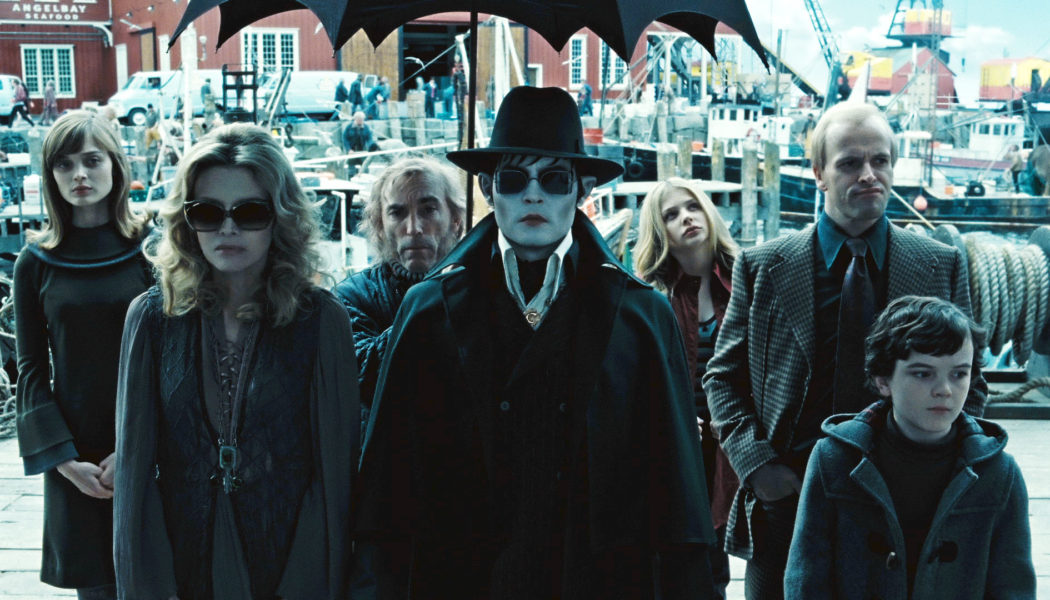
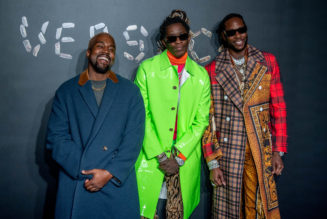
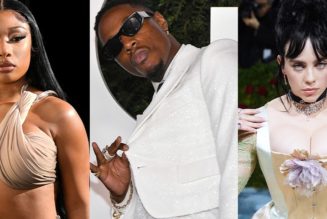

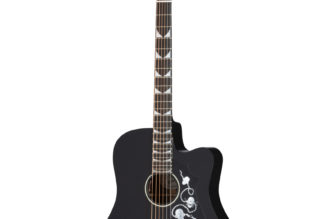

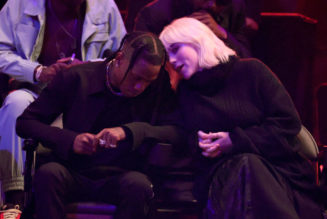
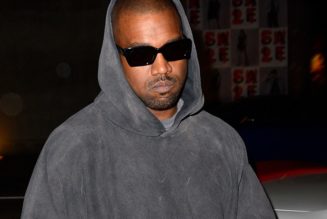
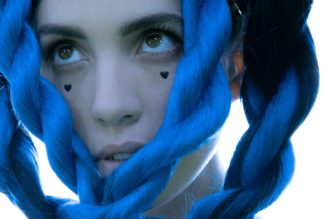

Tagged: Alternative Music, Dissected, Film, Helena Bonham Carter, Hot, Johnny Depp, Lists, Michael Keaton, music blog, Tim Burton